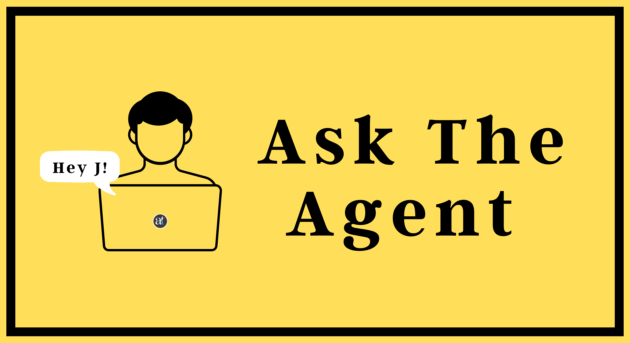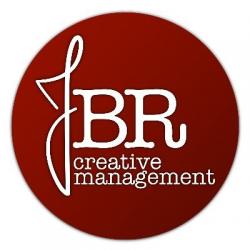Hey J! Ask the Agent: Is it good to share?
Hey J!
I have been out of work for a little while now and forced to get a job to ‘pay the bills’. What is your opinion on picking up some profit-share jobs to stay connected to the industry? Does it devalue my future worth?
Cheers mate,
John
Hi John,
Given that barely 10% of actors are in work at any one time and less than 5% earn the equivalent of an average Australian salary, it’s absolutely normal to be out of work or ‘resting’ as it’s so euphemistically called. We all appreciate you have rent and bills to pay, food to buy, and a life to lead. We know that acting is unlikely to be your sole source of income – so please don’t worry that having periods of being ‘out of work’ on your CV looks bad.
I’ve seen loads of social media posts that say something along the lines of “You’re still an actor even if you haven’t acted for years!” And I think, well that’s lovely, that’s really positive and encouraging but to be honest, I don’t know anyone who wholeheartedly believes that. The longer someone is out of work the harder it is to still feel like an actor, right? The fear gets greater, the feeling of impostor syndrome is stronger, the nagging doubts about your chosen career grow bigger and the negative voices in your head become louder. Am I right? You can pin as many positive slogans to your mood board as you like (and some days they will be easier to believe than others) but that feeling of “I’m not really an actor” is going to grow and grow the longer the periods between work are.
There’s lots of things you can do – you can take class, you can learn a monologue, you can write off for auditions, you can take action, but at some point you need to get back on stage, or back on set, and feel that rush again – so why not pick up some profit-share work? Not only will it relight that fire but it also gives you something to say when you’re back in an audition room and the panel ask the question “what have you been up to lately?”
Although I started my professional career as a kid working in London’s West End I grew up around out-of-work actors. I hung out with them when they were doing profit-share work. They’d rehearse in someone’s garage, or in a park if the weather was good, they’d haggle with venue owners over box office splits, they’d pool their skills together to build sets and design posters and manage the publicity, they’d beg charity shops for costumes. They did profit-share because they loved the work they were creating and felt a connection to it and they were all getting something out of it. I think there’s something extraordinary that happens when a group of actors gets together to do something because they are all united in their vision.
I have no problem with profit-share work as long as it’s legitimate profit-share work, where everyone’s in it together and taking the same risks. I have big problems with profit-share when the only people not getting paid are the actors. In a profit-share, everyone is working for nothing and everyone agrees to an equal split of the profits. The accounting books should be open for everyone to look at and everyone is on an equal footing. When a group of friends get together and try to alleviate their boredom and feel like actors again by putting something on – well, I think that’s just amazing. When a producer budgets for everything except paying the actors – that gets me pretty worked up, to be honest.
One of the other problems with profit-share is that it feeds that need to perform. It’s like smoking ‘just one’ cigarette after you’ve given up for years. The buzz you get from performing can be very addictive. Work begets work but it tends to beget the same type of work – the more you work for free the more you’ll be asked to work for free. While the odd bit of profit-share on your CV won’t devalue your worth, a CV that is full of unpaid work will.
What I learned from doing a lot of profit-share work as an actor was that my body got into the rhythm of it – most theatre jobs were five weeks at most – two weeks rehearsal, a couple of days tech and then two and bit weeks performing. Five weeks isn’t even the rehearsal period for a lot of big commercial shows. I was training my body into short runs instead of training myself to have the stamina I needed for a long run. Additionally, the work I was doing, the line-learning, the character study, the text analysis was all very superficial – I was rehearsing by day and then going straight to my bar job in the evening – I had no time to reflect on the rehearsal or to study my script. I also noticed that often the people I was working with were all very similar to me. We were all around the same age, the same socio-economic class, the same level of training. We were all at a pretty similar point in our careers (including the creative team) and after a while I wondered what I was actually learning from working with the same type of people over and over again. I was burning out from exhaustion and I wasn’t moving forward. Worst of all I was often making myself unavailable for paid work which kind of defeated the objective.
Your agent may have particular ideas about the value of profit-share work – how much time is it going to take up? Will it be useful? Remember your agent is always working for you and thinking about how to move your career forward. It’s worth discussing it with your agent but bear in mind they may not want you to do profit share because they usually won’t earn anything from it.
I advise my clients to think about work by working out which category a job falls into – is it Cash, Kudos, or Kicks? Ideally, a job is going to tick all of those boxes – it’s going to pay you enough to live on, it’s going to bring you an element of kudos or acclaim, and it’s going to be fun. Some jobs might hit two of those, some might hit only one. And you know what, John? That’s okay. Take a job solely because it’s going to earn you enough money to pay rent! Do it because, even though you’ve only got two words, you’ll be working with that amazing director or that prestigious company! Do it because you know it’s going to be fun! Some of the best jobs I ever had in my acting career I only took because I knew I’d have a laugh.
Profit-share can be amazing. And, for what you want it to do, to remind you that you’re an actor, to light that spark again, I think it can be incredibly valuable. Do it for fun. Know why you’re doing it, expect nothing more from it and make sure it’s not going to cost you (in time, effort, or loss of paid work) more than you get from it.
Stay connected. Stay creative.
J
Got a question? Email JBR at [email protected]




